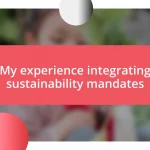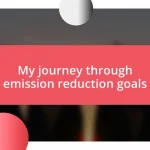Key takeaways:
- Climate policies, such as the Paris Agreement, can drive economic growth through renewable energy investments, but they may also challenge certain industries, highlighting the need for balance between sustainability and economic realities.
- Vulnerable communities often face social hardships due to climate policies, including increased costs, limited resources, and feelings of exclusion from important discussions, underscoring the importance of inclusivity in climate action.
- The Paris Agreement has spurred significant technological advancements, particularly in renewable energy and electric vehicles, fostering innovation that aligns with sustainability goals and reshaping various industries.
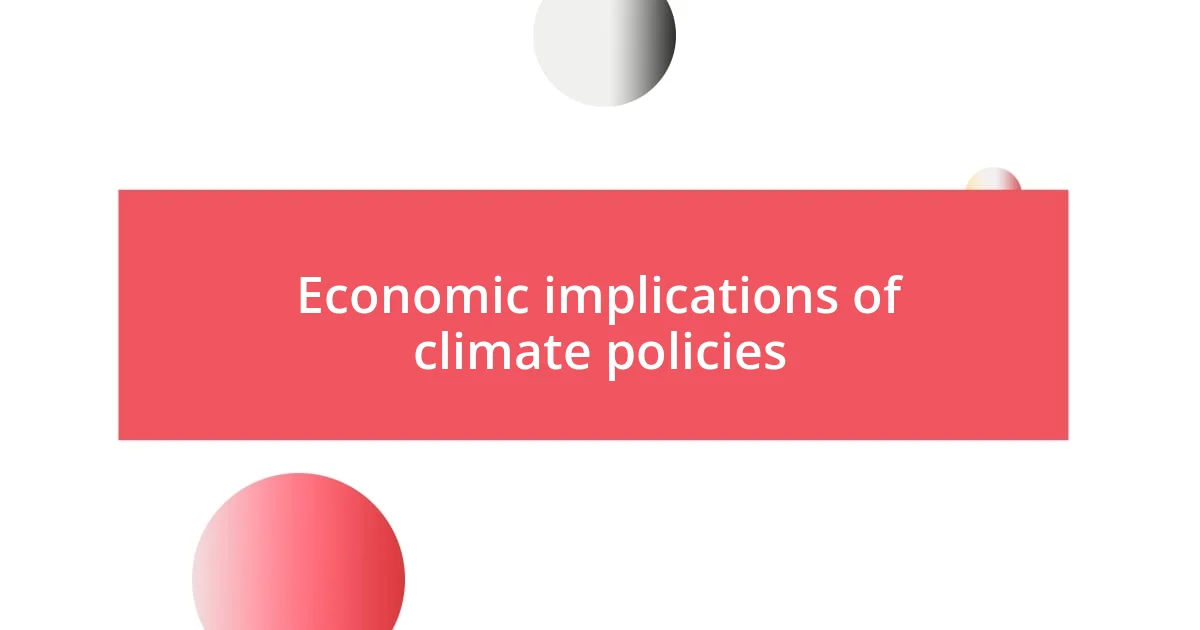
Economic implications of climate policies
Climate policies, like those established by the Paris Agreement, can significantly reshape economies. For instance, I recall attending a seminar where an expert shared how renewable energy investments could create new jobs while also reducing reliance on fossil fuels. Isn’t it fascinating to think that the transition not only promises environmental benefits but economic growth too?
However, I’ve seen firsthand how these policies can put a strain on certain industries. A friend of mine, who owns a small automotive business, struggled to adapt after new regulations aimed at reducing emissions were introduced. This shift made me wonder: how do we balance the need for sustainable practices with the economic realities faced by hardworking entrepreneurs?
Moreover, the shift towards greener technologies opens up a myriad of opportunities, especially in innovation and investment. I recently met an entrepreneur who pivoted their tech startup to focus on energy efficiency solutions. It made me realize how climate policies can inspire creativity and drive economic resilience. How might your business evolve if you embraced these opportunities?
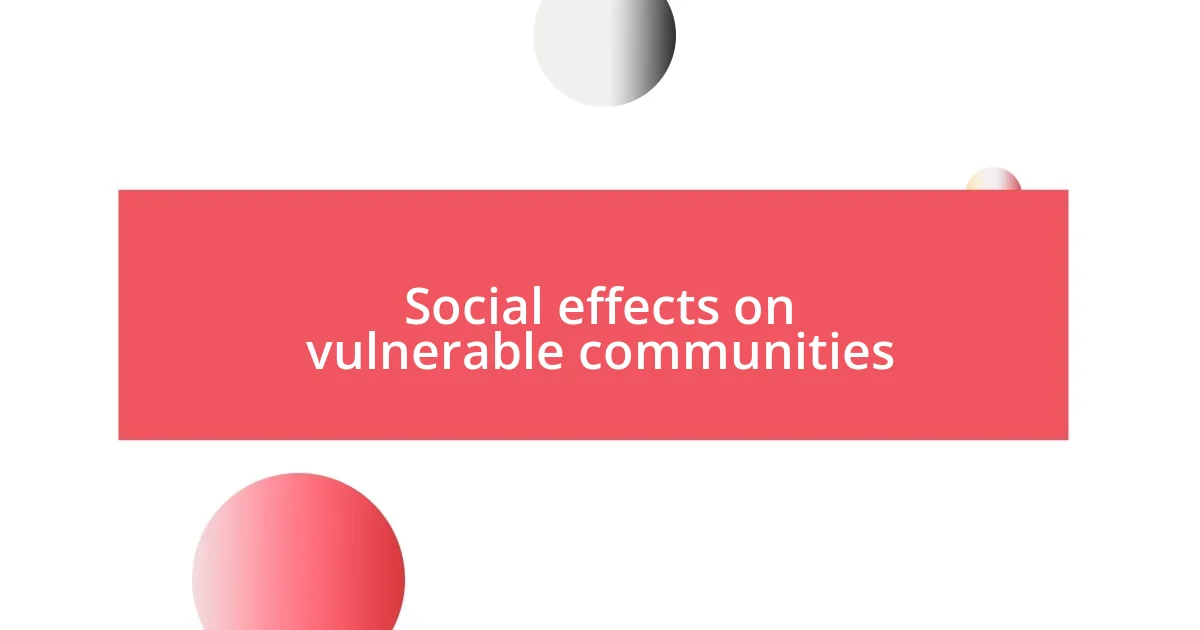
Social effects on vulnerable communities
The social effects of climate policies under the Paris Agreement can have profound impacts on vulnerable communities. From my experience volunteering with local NGOs, I’ve witnessed how shifts in climate resilience measures can inadvertently marginalize those already facing challenges. Families that depend on agriculture often struggle to adapt to new regulations, leaving them caught in a cycle of poverty and food insecurity.
- Increased costs of essential goods.
- Limited access to resources for adaptation and resilience.
- Displacement due to climate-induced disasters.
- A strain on mental health and community cohesion.
When I spoke with community leaders in a low-income neighborhood, they expressed frustration about feeling sidelined in discussions about new energy initiatives. Their voices often go unheard, leading to policies that don’t reflect their needs. It’s a stark reminder that genuine inclusivity is crucial for effective climate action. After all, the most vulnerable deserve a seat at the table when shaping their futures.
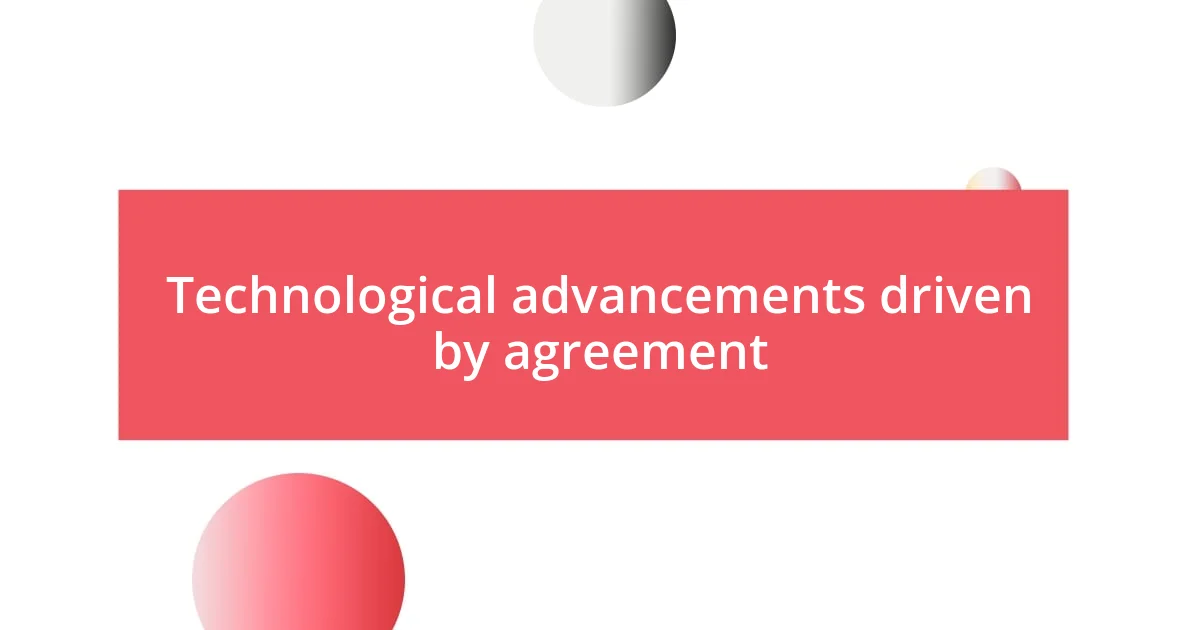
Technological advancements driven by agreement
Technological advancements truly flourished in the wake of the Paris Agreement. I recall a recent discussion with a friend who works in the renewable energy sector; she excitedly shared how advancements in solar panel efficiency have opened doors for widespread use in places once deemed impractical. Isn’t it inspiring to think that technology not only advances but also aligns with our collective push towards sustainability?
As I dug deeper into various initiatives, I discovered many startups focused on significant breakthroughs in carbon capture technology. It struck me how these innovations could potentially reshape industries by directly addressing emissions, thus supporting the goals set forth in the Agreement. Can you imagine industries re-evaluating their processes not out of compliance, but rather from a desire to lead in this technological race?
Moreover, I’ve personally witnessed how electric vehicle (EV) technology has skyrocketed since the Paris Agreement, transforming the automotive landscape. I often find myself marveling at the rapid development of charging infrastructure in my city. It raises an intriguing question: how will the next wave of technological innovation redefine our daily lives and the industries we interact with? The evolution is not just about progress; it’s about creating a sustainable future we all can participate in.







